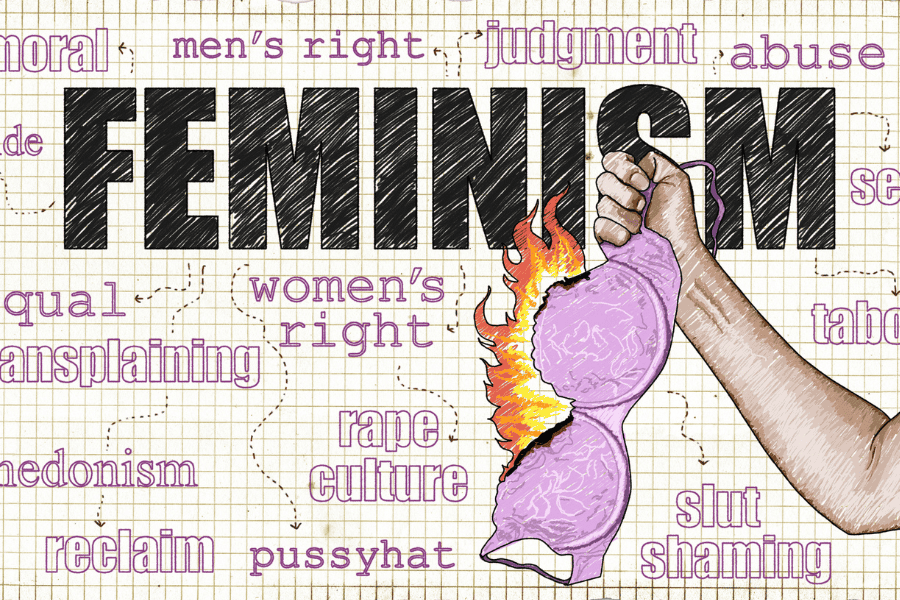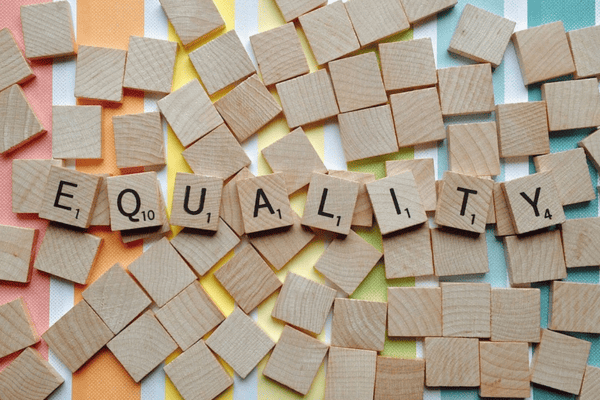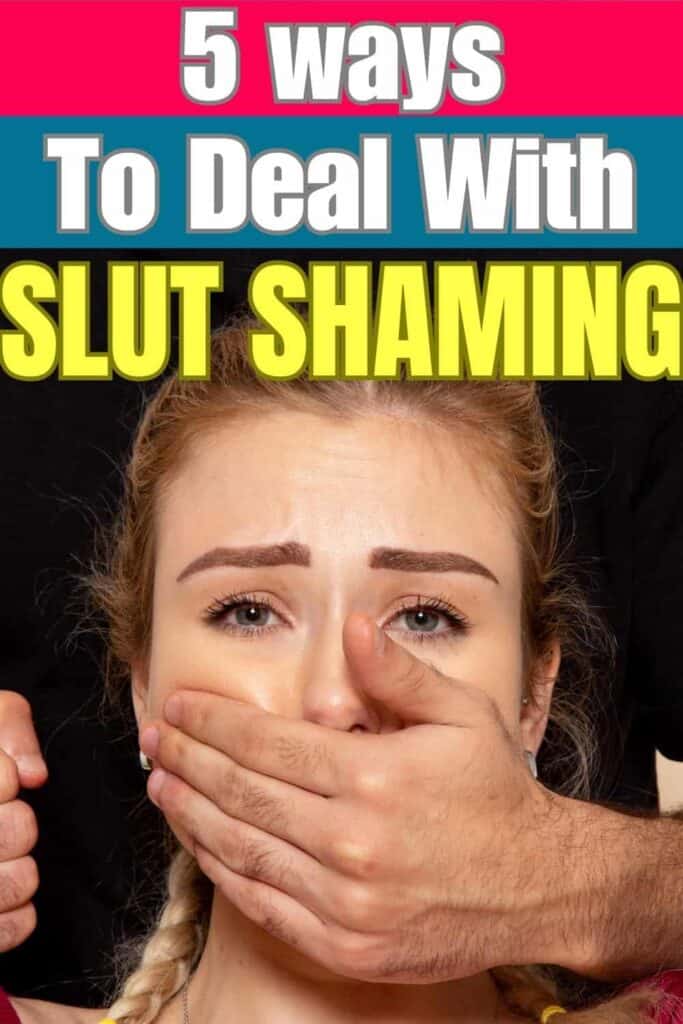
Slut shaming is a cruel form of bullying that makes fun of people’s sexual behaviour or choices, especially those of women. People’s sexual preferences are used to criticize, make fun of, or label them. Sadly, slut shaming has become increasingly prevalent in our society. And it’s disheartening to see how widespread slut shaming has become in our community.
Della was shocked when she found out that her coworkers were slut shaming her behind her back. Della was a confident and independent woman who enjoyed exploring her sexuality. One night, she met a charming man at a bar and they hit it off. They went back to his place and had a passionate one-night stand.
The next day, Della was feeling great, but when she returned to work, she overheard her coworkers gossiping about her sexual escapades and slut shaming her. They called her names and made her feel ashamed and embarrassed. Della was hurt and confused. She didn’t understand why people were judging her for something that was consensual and private.
It is vital for us to learn more about the complex context of slut-shaming. By figuring out the patterns behind this terrible issue, we can teach ourselves and others how to identify it when it happens. We can actively stop and fight this hurtful habit if we do something about it.
Understanding slut shaming
Slut shaming is when people, especially women, are criticized and put down for what is seen as their sexual behaviour or choices. It’s a way of judging that tries to shame and put down people. This is often because of society’s expectations and how people consider each other. When this kind of bullying happens, it can hurt people in evil ways.
Origins of slut shaming
Slut shaming is a complicated social problem with deep roots in history and an evolution of change. It is a phenomenon deeply ingrained in patriarchal societies. In these societies, women are often seen as sexual objects and judged unfairly based on how they act sexually. Intriguingly, men are praised and recognized for their conquests, while women are often shamed and criticized for doing the same things.
There’s no denying the profound influence of religion in our society. Some scriptures have been used to support chastity and sexual restraint, making people who don’t follow these rules look bad. Other religions and cultures believe that sex should only happen between married people and that any sexual behaviour outside marriage is wrong or evil.
Impacts of slut shaming
Slut-shaming is a bad habit that can have a significant effect on a person’s mental and social health. It’s like having an enormous weight on their shoulders, pulling them down and making them wonder what they’re worth. These feelings can be extreme and affect their mental health and how they see themselves. People’s fear of being judged by others can be so intense that it can make them want to hide and stop talking to others.
Slut Shaming someone can have adverse effects on their mental and physical well-being. This could lead to sexual violence, like rape and other types of assault. Some people might not get contraception or medical care because they fear being judged or embarrassed.

People need to stand up to bad ideas and actions. Men and women should have the same rights, and there should be places where people can say what they think without being judged or hurt. It’s time for things to change and make the world a better place for everyone.
1. Recognizing slut shaming
Slut shaming comes in various shapes and sizes. Understanding and acknowledging it is crucial so we can effectively fight against it. There are multiple ways in which slut shaming can manifest itself, both subtly and overtly.
Subtle forms
Slut shaming, which is more subtle, can be harder to spot because it is often done with words and actions that seem harmless or are accepted by society. Here are some examples:
1. Using wording that is specific to one gender to indicate whether something is good or bad.
2. Prying into someone’s private love life
3. Judging what someone wears or how they do their makeup
4. Guessing about someone’s personal life just from how they look or act
5. Playfully using mean words like “slut” or “whore”
These sneaky forms of judgment can often go unnoticed. But we are responsible for confronting and challenging them whenever we encounter them.
Overt forms
“Overt forms of slut shaming” is when it’s clear that someone is being judged or criticized for their sexual choices or behaviour. These include:
- Telling stories about someone or talking about what they do in private.
- Calling someone “slut” or “whore” right to their face.
- Saying it’s their fault they got hurt because of how they dress or act
- Judging someone for having many partners or different types of relationships
People often use these overt forms of slut shaming to control and humiliate people for their sexual behaviour, which can severely affect their mental health and well-being.
Slut shaming can happen in both subtle and overt ways, making people feel judged and put down. But if we recognize and talk about this behaviour, we can stand up to it and make the world more open and kind.
2. Personal strategies to handle slut shaming
Getting through the uncertain seas of slut-shaming can be an emotional roller coaster. It’s a tough pill to take, but don’t worry! Like a pro, you can use neat personal techniques to deal with it.
Seeking support when you are slut shamed
Madeline’s heart raced as she read the hateful comments her ex-boyfriend had posted about her on social media. She felt violated and humiliated and didn’t know who to turn to. She knew she should tell her mother, but the thought of admitting what had happened made her feel even more embarrassed.
Days turned into weeks, and Madeline couldn’t shake the feeling of shame and isolation. She felt like she was carrying a heavy burden that no one else could understand. Finally, she confided in a close friend who listened with empathy and encouraged her to seek help. With her friend’s support, Madeline found the courage to talk to her mother about what had happened. Though it was difficult, she was relieved to have someone on her side who could offer guidance and support.

When dealing with slut shaming, it can be beneficial to get help from trusted friends, family members, or mental health professionals. Surround yourself with great people who will lift you up and respect your choices. Having a solid group of people to lean on can make all the difference, whether facing problems or enjoying wins.
Some ways to ask for help are:
- Talking to a friend or family member, you can trust
- Joining a group for people who have been sexually abused or harassed
- Seeing a mental health provider for therapy or counselling
Having a solid support system can make all the difference. Whether when facing problems, making hard choices, or just going through the ups and downs of everyday life. Think of the people who help you as your cheering section, always ready to lift you up.
3. Educating others about slutshaming
Getting people to understand what slut-shaming is is a big step toward making society more accepting and kinder. Slut-shaming is a harmful behaviour where individuals, typically women, are scolded or criticized for their sexual behaviour and choices regardless of their authenticity.
Conversations with friends
It can be hard to talk to friends about sensitive topics, but it’s essential to do so to raise understanding and help others learn more. When talking with friends about slut shaming, it’s necessary to be kind and not to judge. Here are some valuable tips for engaging in meaningful conversations.
- Start by being interested and hearing what they have to say. It’s a great way to discover their thoughts and ensure they have no reservations.
- Share real stories, such as your own or those of others, to make the problem feel accurate and understandable.
- Be kind, and don’t make them feel bad about themselves. Instead, it would help if you focused on teaching and informing people.
- If they’re interested, offer them links to websites or stories they can read to learn more about slut-shaming and its effects.
4. Legal resources against slut shaming
Using the law to prevent slut-shaming entails seeking solutions to problems. This involves looking for legal remedies and taking proper action in such cases.
Understanding your rights
Getting around in the complicated world of slut shaming can be hard on your emotions, but it’s important to know what your legal rights are. By knowing your legal rights, you will be able to deal with this problem head-on.

Did you know Canada has strict rules to protect people from being harassed or mistreated? Laws like the Canadian Human Rights Act and the Criminal Code protect people from being maltreated. It’s all about making a more open and accepting society where everyone can be themselves without fear of being picked on.
More posts lists you might like
- What to say if people call you a slut
- Top ten comebacks for people who won’t respect boundaries
- Check out our top ten comeback lists
Reporting incidents OF SLUT SHAMING
Reporting slut shaming offenses is a significant step toward getting justice and help. Whether you’re a student or a worker, your school or job is an excellent place to go for help. Also, calling the police or other law enforcement agencies can give you the support you need to handle the problem.
Schools and businesses are required by law to make sure everyone feels safe and welcome. Whether you’re a student or a worker, you have the right to be in a place where respect and truth are valued. Reach out to your school’s administration or human resources department because they can guide you through filing a complaint.
It is essential for people who are being harassed or threatened with violence to report it to the cops right away. They can investigate what happened and take formal action against the person who was harassing them. This can include pressing charges for hate speech or criminal harassment.
It can be hard and scary to speak out against slut shaming, but it’s essential to stand up for yourself and stop the harm. Remember that standing up makes you feel better about yourself and makes everyone safer. Your safety and well-being should always be your top concern, and the authorities are there to protect and help you in these situations.
5. Promoting a positive, non-judgmental society
Promoting a positive, non-judgmental society is a crucial way to stop slut-shaming and create a place where people are valued and not criticized too much for their sexual choices or behaviour.
Encouraging respectful language
In a world that aims for inclusivity and respect, it is critical that we harness and carefully use this potential. One area where this is especially relevant is how we talk about and address people based on their sexual orientation. It’s time to break free from stereotypes and stigmas and embrace a vocabulary that raises and empowers everyone, regardless of sexual orientation.
Education is a great tool that can help us do this. We can build a more compassionate and understanding world by spreading awareness and empowering people. It’s like making a solid base for a more happy and kind society.
Promoting equality and consent
Creating a society that is positive and accepting is very important. One way to do this is to fight for equality and consent. A fair and just society is built on the idea that everyone should be treated equally. It means treating each person with respect and honor, regardless of race, gender, or sexual orientation. Consent is all about making sure that everyone agrees with what is happening and is happy with it.

Education is one of the most important ways to break down the Power of Equality and Consent. By showing how vital equality and consent are, we give people the tools they need to make healthy and meaningful relationships. Through entertaining activities and stimulating talks, young people understand how these ideas affect their lives.
People can also support equality and consent in their personal relationships by connecting to their partners openly and honestly. This means addressing boundaries, desires, and standards and respecting each other’s choices and decisions. By promoting equality and consent, people can help build a society where everyone feels valued and accepted and where people are more likely to be kind and helpful to each other.
it’s important for us to stand up against slut shaming and create a culture where everyone is treated with respect and dignity, regardless of their choices or actions. We must work towards creating a world where no one is made to feel ashamed or humiliated for their sexuality or personal choices.
The Role of counselling and self care
I Should Have Said Media will earn a commission after clicking links on this page at no additional cost to you. Learn more.
Better Help is a great resource where you can talk to a counselor from the comfort of your own home.
Taking care of your own needs isn’t selfish, and you will feel better in the long run.








